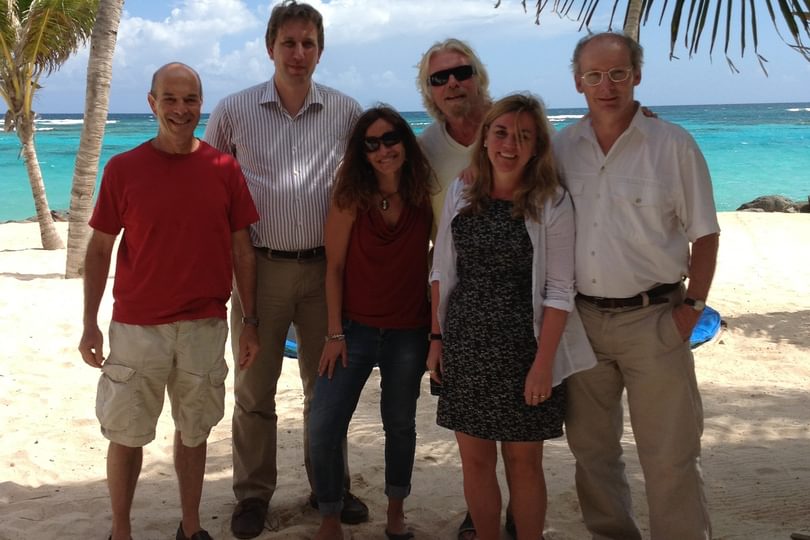
Oxford Martin School researchers have returned to Oxford after showcasing their latest findings to a select audience of entrepreneurs and philanthropists at Richard Branson’s Necker Island.
The event, which focused on Solutions for the Future of People and Planet, was part of an ongoing collaboration with Virgin Unite to build a community of entrepreneurs and leaders engaging with academics and their latest research.
Richard Branson described the “very inspiring days” with “a group of stellar academics from the Oxford Martin School, a group trying to find innovative, entrepreneurial solutions to the world's toughest challenges.”
Oxford Martin School’s Director, Ian Goldin said; “It is very exciting for the Oxford Martin School to be working with Richard Branson and Virgin Unite on this special event. It gives us the opportunity to engage with leaders of business and philanthropy and share ideas from our cutting edge research. Through our work we address the world’s biggest challenges with the objective of harvesting the extraordinary opportunities of the coming decades. Our time with Richard’s Branson’s guests on Necker helps us to get our knowledge out of the lab and academia and engage with people who we believe can make a difference.”
Director of the Biodiversity Institute, Kathy Willis, who was part of the Oxford Martin School team added; “The small group size (some 20 people including Richard Branson) and informal surroundings in the spectacular setting of Necker Island provided an excellent platform for wide ranging and forward-looking discussions. For biodiversity, the presentation and subsequent discussion focused around the question of how to identify and conserve biodiversity beyond protected areas (currently ~ 88% of the Earth’s terrestrial surface and 99% of the marine realm). A number of pragmatic solutions were discussed including the use of emerging smart phone and computer technologies and web-based tools to map and analyse biodiversity beyond protected areas, and to identify important areas for ecosystem service provision. Restoration of ecological processes to degraded land was another focal topic. One option for doing this, through restoration of trophic structures and in particular introduction of large herbivores onto landscapes, seemed particularly relevant in Necker; giant tortoises (an important ecosystem engineer on both the Galapagos and several Indian Ocean Islands) were introduced to the Necker Island in recent years.”
Oxford Martin School research into the benefits of crowdsourcing, the challenges of nanotechnology and the unsustainability of our global food system were also presented and discussed.
Taking part in Necker Meets Oxford were:
Professor Ian Goldin, Director, Oxford Martin School
Professor Charles Godfray, Director, Oxford Martin Programme on the Future of Food
Dr Chris Lintott, Co-Director, Programme on Computational Cosmology
Dr Sonia Trigueros, Co-Director, Oxford Martin Programme on Nanotechnology
Professor Kathy Willis, Director, Biodiversity Institute
· Read Richard Branson’s blog, Necker Meets Oxford: https://www.virgin.com/richard-branson/blog/necker-meets-oxford
· More about Virgin Unite http://www.virginunite.com/default.aspx?nid=96e9b78a-cc3b-4c6e-b4e4-bc0ba18184c1